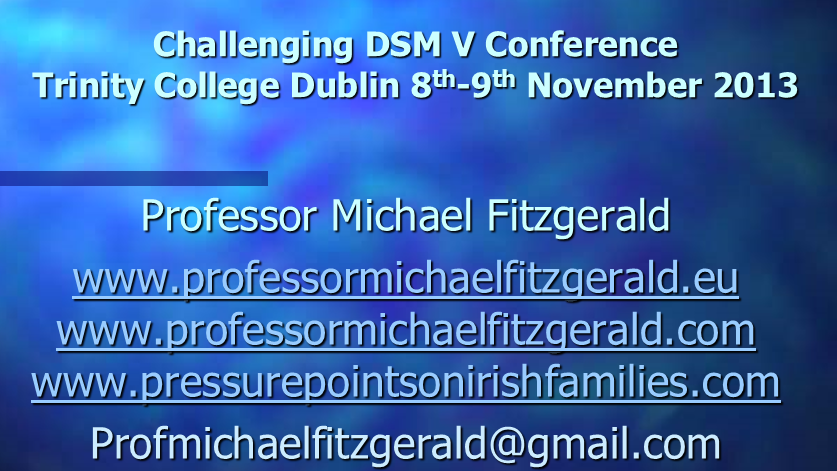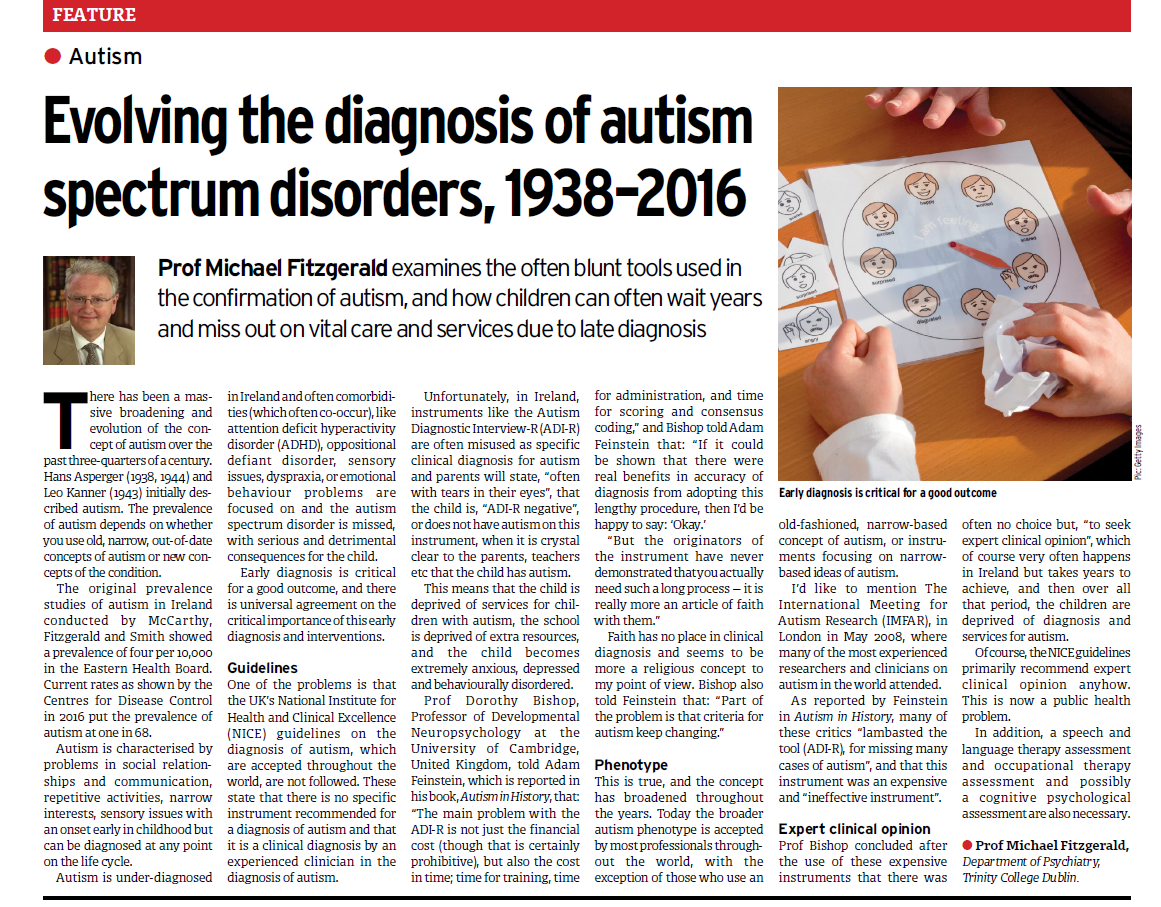




Sigmund Freud was one of the most controversial writers of the 20th Century. He had Asperger’s Syndrome and so without understanding this condition, it is difficult to make sense of Freud and his writings. He was mainly a literary figure whose theories have very little scientific support. His greatest contribution was that he thought us to listen to patients. This book sets Sigmund Freud in the context of Psychotherapy today and focuses on the pros and the cons of Freud and his theories. Click here to buy your copy on Amazon.

This lecture delivered by Prof. Michael Fitzgerald at the World Autism Association in the USA, focuses on many issues not dealt with in DSM 5. It deals with Autism as an endlessly contradictory condition.
World Autism Association, Houston, Texas, November 2018 – Powerpoint Presentation
Autism Beyond DSM 5 – World Autism Association – Houston, Texas, November 2018

This presentation was about diagnostic problems in the area of Autism and was delivered in Trinity College, Dublin by Prof. Michael Fitzgerald in November 2013
Challenging DSM V Conference – Trinity College Dublin – November 2013
The results of this study show that for Irish primary school children, the probability of psychiatric illness is positively associated with low IQ and reading difficulties, large family size, being a boy rather than a girl, and having a mother who is dissatisfied with her marriage or her role as mother.
The importance of listening to the mother – Tips on accessing children with behavioural difficulties.
For some time, the understanding of child behaviour problems tended to blame mothers. This was a catastrophic error, writes Professor Michael Fitzgerald
Blaming the Mother Article by Prof. Michael Fitzgerald – Opinion GP Ireland
A longitudinal follow up study
 There has been a massive broadening and evolution of the concept of autism over the past three-quarters of a century. Hans Asperger (1938, 1944) and Leo Kanner (1943) initially described autism. The prevalence of autism depends on whether you use old, narrow, out-of-date concepts of autism or new concepts of the condition. The original prevalence studies of autism in Ireland conducted by McCarthy, Fitzgerald and Smith showed a prevalence of four per 10,000 in the Eastern Health Board. Current rates as shown by the Centres for Disease Control in 2016 put the prevalence of autism at one in 68. Autism is characterised by problems in social relationships and communication, repetitive activities, narrow interests, sensory issues with an onset early in childhood but can be diagnosed at any point on the life cycle. Autism is under-diagnosed in Ireland and often comorbidities (which often co-occur), like attention deficit hyperactivity disorder (ADHD), oppositional defiant disorder, sensory issues, dyspraxia, or emotional behaviour problems are focused on and the autism spectrum disorder is missed, with serious and detrimental consequences for the child. Early diagnosis is critical for a good outcome, and there is universal agreement on the critical importance of this early diagnosis and interventions.
There has been a massive broadening and evolution of the concept of autism over the past three-quarters of a century. Hans Asperger (1938, 1944) and Leo Kanner (1943) initially described autism. The prevalence of autism depends on whether you use old, narrow, out-of-date concepts of autism or new concepts of the condition. The original prevalence studies of autism in Ireland conducted by McCarthy, Fitzgerald and Smith showed a prevalence of four per 10,000 in the Eastern Health Board. Current rates as shown by the Centres for Disease Control in 2016 put the prevalence of autism at one in 68. Autism is characterised by problems in social relationships and communication, repetitive activities, narrow interests, sensory issues with an onset early in childhood but can be diagnosed at any point on the life cycle. Autism is under-diagnosed in Ireland and often comorbidities (which often co-occur), like attention deficit hyperactivity disorder (ADHD), oppositional defiant disorder, sensory issues, dyspraxia, or emotional behaviour problems are focused on and the autism spectrum disorder is missed, with serious and detrimental consequences for the child. Early diagnosis is critical for a good outcome, and there is universal agreement on the critical importance of this early diagnosis and interventions.